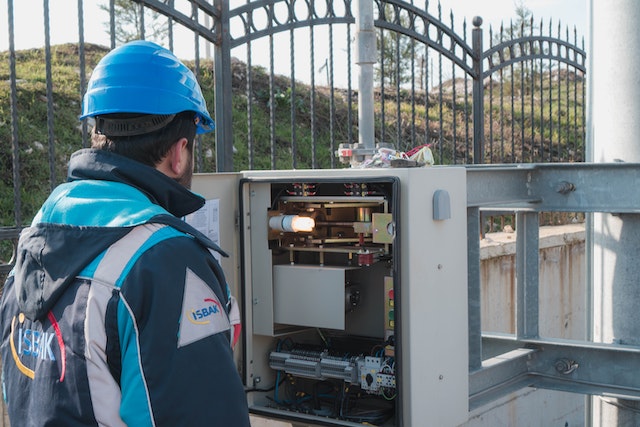The efficiency and safety of electrical and mechanical systems are crucial across different sectors, from industrial plants and commercial establishments to residential homes. Whether it’s the installation of new systems or the upkeep of existing ones, understanding the nuances of industrial, commercial, and domestic installations can significantly impact operational performance and safety.
Industrial Installations
Scope and Complexity
Industrial installations involve complex systems that require precise engineering and adherence to stringent safety standards. These systems often include high-voltage electrical networks, intricate HVAC systems, and specialized machinery. The installation process must ensure compliance with regulatory standards, such as those set by OSHA (Occupational Safety and Health Administration) in the U.S., and industry-specific guidelines.
Service and Maintenance
Regular service and maintenance are critical to prevent downtime and ensure the safety of industrial operations. This includes routine inspections, calibration of equipment, and replacement of worn-out components. Preventive maintenance strategies are employed to identify potential issues before they escalate into significant problems. Service contracts with specialized firms often provide continuous support and regular check-ups.
Emergency Breakdown Repairs
In the event of a breakdown, the response needs to be swift to minimize operational disruption. Emergency repair services in industrial settings are typically available around the clock. Technicians must be equipped with the skills and tools to handle high-stress situations and restore systems to full functionality as quickly as possible. Rapid response teams are often on standby to address critical failures and avoid costly downtime.

Commercial Installations
Diverse Applications
Commercial installations encompass a wide range of applications, from office buildings and retail spaces to healthcare facilities and educational institutions. Each type of commercial property has specific requirements for its electrical, plumbing, and HVAC systems. Proper planning and installation are essential to ensure that these systems meet the needs of the business and comply with local codes and regulations.
Service and Maintenance
For commercial properties, routine service and maintenance are essential for maintaining a conducive working environment and ensuring operational efficiency. Regular servicing of HVAC systems, lighting, and electrical systems helps in avoiding unexpected breakdowns and ensuring energy efficiency. Scheduled maintenance can also contribute to longer equipment lifespans and reduced operating costs.
Emergency Breakdown Repairs
Commercial establishments often experience disruptions due to system failures, which can impact productivity and customer satisfaction. Emergency repair services are crucial for quickly addressing issues such as power outages, heating or cooling system failures, and plumbing leaks. Service providers typically offer rapid response times and have the capability to perform emergency repairs with minimal disruption to business operations.
Domestic Installations
Residential Needs
Domestic installations include a variety of systems such as electrical wiring, plumbing, heating, and cooling systems. These installations must be designed to ensure safety, efficiency, and comfort for homeowners. Compliance with building codes and standards is critical to avoid potential hazards.

Service and Maintenance
For residential systems, regular service and maintenance help in preventing common issues and extending the life of household systems. This can include routine inspections of electrical systems, annual servicing of HVAC units, and periodic plumbing checks. Homeowners are encouraged to schedule maintenance tasks proactively to address minor issues before they become major problems.
Emergency Breakdown Repairs
Emergency repairs in residential settings are often required for urgent issues like electrical failures, burst pipes, or heating malfunctions. Rapid response from skilled technicians is essential to mitigate damage and restore normalcy. Many service providers offer emergency repair services with 24/7 availability to handle such urgent situations effectively. Contact total control electrical for further information.
In conclusion, whether for industrial, commercial, or domestic installations, the emphasis on proper installation, regular service, and prompt emergency repairs cannot be overstated. Each sector has unique requirements and challenges, but maintaining high standards across all areas ensures operational efficiency, safety, and reliability. Investing in quality installation services and proactive maintenance practices ultimately leads to long-term benefits and minimized disruptions.
















